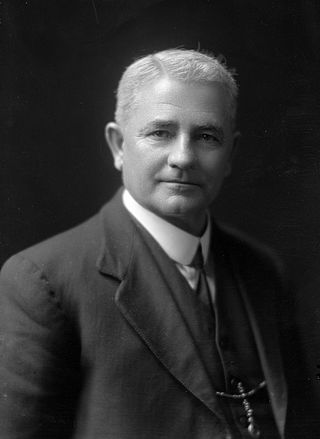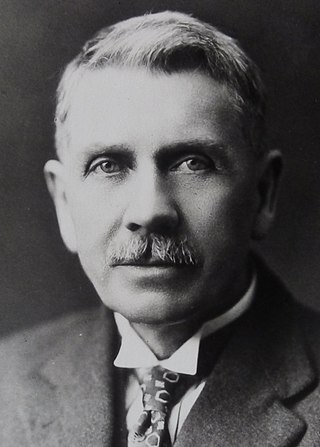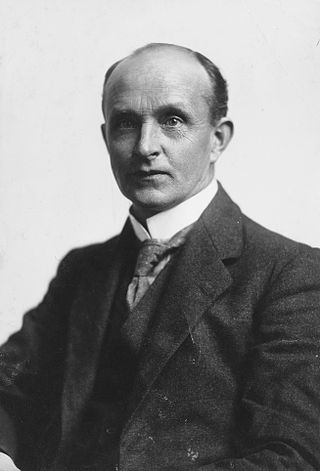The New Zealand Labour Party, also known simply as Labour, is a centre-left political party in New Zealand. The party's platform programme describes its founding principle as democratic socialism, while observers describe Labour as social-democratic and pragmatic in practice. The party participates in the international Progressive Alliance. It is one of two major political parties in New Zealand, alongside its traditional rival, the National Party.

The 1981 New Zealand general election, held on 28 November 1981, was a nationwide vote to determine the shape of the 40th New Zealand Parliament. It saw the governing National Party, led by Robert Muldoon, win a third term in office, but the opposition Labour Party, led by Bill Rowling, won the largest share of the votes cast. Social Credit also won over 20% of the vote – their best result ever – but received no new seats.

The 39th New Zealand Parliament was a term of the Parliament of New Zealand which began with the general election held on 25 November 1978, and finished with the general election held on 28 November 1981. The dates of the Muldoon Ministry were from 13 December 1978 to 11 December 1981.

The 1943 New Zealand general election was a nationwide vote to determine the shape of the New Zealand Parliament's 27th term. With the onset of World War II, elections were initially postponed, but it was eventually decided to hold a general election in September 1943, around two years after it would normally have occurred. The election saw the governing Labour Party re-elected by a comfortable margin, although the party nevertheless lost considerable ground to the expanding National Party.
The Independent Political Labour League (IPLL) was a small New Zealand political party. It was the second organised political party to win a seat in the House of Representatives, and was a forerunner of the modern Labour Party.

Henry Edmund Holland was an Australian-born newspaper owner, politician and unionist who relocated to New Zealand. He was the second leader of the New Zealand Labour Party.

The East Coast Bays by-election of 1980 was a by-election during the 39th New Zealand Parliament in the East Coast Bays electorate. It resulted in an upset for the National Party, as their candidate and future leader Don Brash was unexpectedly beaten by Gary Knapp of the Social Credit Party.

The 1919 New Zealand general election was held on Tuesday, 16 December in the Māori electorates and on Wednesday, 17 December in the general electorates to elect a total of 80 MPs to the 20th session of the New Zealand Parliament. A total number of 560,673 (80.5%) voters turned out to vote.

William Andrew Veitch was a New Zealand politician. He began his career in the labour movement, but became a strong opponent of more militant socialism, and rejected the radical views held by many of his colleagues.

The 19th New Zealand Parliament was a term of the New Zealand Parliament. It opened on 24 June 1915, following the 1914 election. It was dissolved on 27 November 1919 in preparation for 1919 election.

Palmerston North is a parliamentary electorate, returning one Member of Parliament to the New Zealand House of Representatives. The electorate was first formed for the 1890 election and was called Palmerston until 1938. The current MP for Palmerston North is Tangi Utikere of the Labour Party. He has held this position since the 2020 election.

James (Jimmy) McCombs was a New Zealand Member of Parliament for Lyttelton.

Robert Fletcher was a New Zealand politician of the Liberal Party.

John Robertson was a New Zealand politician of the Labour Party.

James Wright Munro was a New Zealand politician of the Labour Party.

James Thorn was a New Zealand politician and trade unionist. He was an organiser and candidate for the Independent Political Labour League, Social Democratic Party then the Labour Party.

David Buick was a New Zealand politician of the Reform Party. A New Zealand-born sheep breeder, he represented farming interests in Parliament. He owned racing horses and won various high-profile races. He died in office in the 1918 influenza epidemic.
The Wellington Central by-election of 1918 was a by-election held in the Wellington Central electorate during the 19th New Zealand Parliament, on 3 October 1918. It was caused by the death of incumbent MP Robert Fletcher of the Liberal Party and was won by Peter Fraser with a majority of 1,624.
The Grey by-election of 1918 was a by-election during the 18th New Zealand Parliament. It was held on the 29 May 1918. The seat had become vacant due to the imprisonment of sitting member Paddy Webb who was jailed on the issue of his vocal opposition to conscription which had been enforced by Prime Minister William Massey. The by-election was won by the Labour candidate Harry Holland.
The Wellington North by-election of 1918 was a by-election held in the Wellington North electorate during the 19th New Zealand Parliament, on 12 February 1918. It was caused by the resignation of incumbent MP Alexander Herdman of the Reform Party, who was appointed as a judge of the Supreme Court, and was won by John Luke with a majority of 420.

















